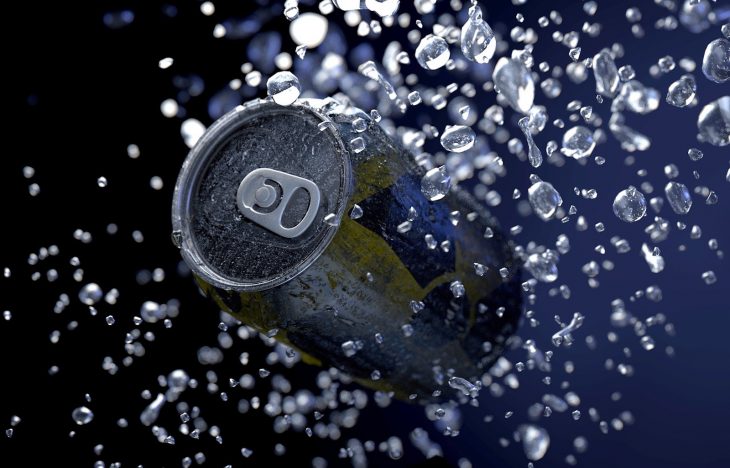A life-cycle assessment of drink containers, conducted at the University of Southampton in the U.K., found that aluminum packaging causes the least environmental impact (in the pressurized beverage category) when compared with containers made from other materials. The research findings are published in Detritus, the Journal for Waste Resources and Residues. As different beverages have different packaging needs, commonly used containers for milk, fruit juice, and pressurized (carbonated) drinks were studied, including glass bottles, aluminum cans, milk cartons (including Tetra Pak), PET bottles (made of polyethylene terephthalate), and HDPE bottles (made of high-density polythene).
Since global concern about pollution from plastics in the seas and the environmental costs of plastics manufacture is rising, this study aimed to:
- review the costs, benefits, advantages, and disadvantages of plastics as packaging materials
- use life cycle assessment to determine if there is less environmentally impactful beverage packaging than plastic bottles
Ian Williams, Professor of Applied Environmental Sciences within Engineering and Physical Sciences at the University of Southampton, U.K., and his team collated five types of pressurized drink containers. He computed the environmental impact of each of them, based on their contribution to climate change as well as the pollution they yield during their manufacturing process, use, and disposal. A factor that needs to be taken into consideration is that not all aluminum cans are recycled, which increases their environmental impact. Still, cans made of 100% aluminum were found to be the least impactful option, and even regular aluminum cans (not 100% aluminum) were also less impactful than glass or plastic.
Glass bottles (not recycled) were ranked least environmentally friendly in the study. Glass requires the extraction of materials like silica sand and dolomite, not to mention a polluting and resource-intensive manufacturing process. During production, the glass itself releases carbon dioxide. According to the research, the contribution of glass bottles to global warming is 95% higher than that of aluminum cans.
Recycled glass bottles are second to last in the line-up of least impactful pressurized drink packaging, due to the energy required during the manufacture of the material. Plastic bottles take third place because recycling them requires less energy than it takes to recycle glass. However, plastic’s properties degrade, unlike aluminum that can be recycled infinitely, while its original properties remain intact. The Southhampton researchers concluded that aluminum, whether recycled or not, is the least impactful of pressurized drink packaging methods.
Research Methodology and Notes
The ISO 14040:2006 and ISO 14044:2006 standards for life cycle assessment formed the basis of the methodology. The open source software openLCA was used to conduct the assessments. Data was assembled from LCA databases such as the European reference Life Cycle Database of the Joint Research Center (ELCD), existing life cycle assessments, scientific reports and peer reviewed literature. The functional unit was set at a container that held one liter of fluid. The results found that in each category there was a less impactful beverage packaging than plastic bottles. In the Pressurized Beverage Category, 100% recycled aluminum cans would be the least impactful option, in the Fruit Juice Beverage Category Tetra Pak would be the least impactful option and in the Milk Beverage Category milk cartons would be the least impactful option.

